Arab warrior queen: Pushing the boundaries of pregnant identity
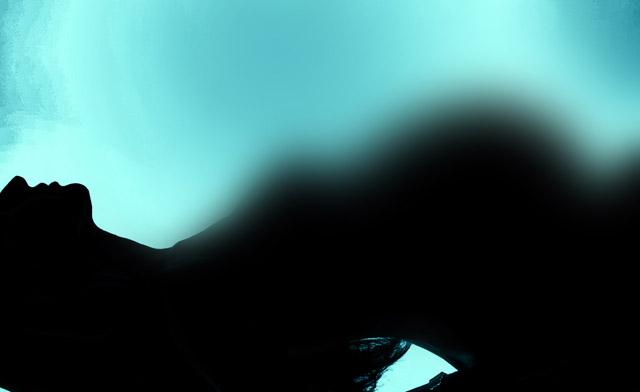
Niamh Mcburney, Alarabiya.net
An exhibition launching today in Beirut will set a bar for photographic exhibitions as yet not attempted in Lebanon - and raise a few eyebrows in the process.
‘Coming Soon’ by Ammar Abd Rabbo, a Syrian-born photographer, features silhouettes of a nude pregnant woman against white and colored backdrops. In various poses, the pictures reveal a woman who is sensual and strong; supporting the child, she is not a victim to her condition.
Ammar Abd Rabbo lived in several Arab countries before moving to France at the age of 12 to flee the Lebanese Civil War. After finishing school, he attended the Institut d’Etudes Politiques in Paris, commonly known as ‘Sciences Po’. For his compulsory military service Abd Rabbo spent time in SIRPA ‘Service d'informations et de relations publiques des armées’, the military public relations and information service (compulsory military service in France was abolished in 1996). In 1992 he began his career as a photojournalist with Sipa Press in Paris, covering the Arab World. In the early 2000’s Abd Rabbo set up his own photo agency, Balkis Press, and in 2002 he signed a syndicate agreement with Abaca Press.
His career has allowed him to get up close and surprisingly personal with royalty and public figures. A quick Google search reveals many of his photos are semi-iconic shots of public figures, such as the 3 First Ladies and the wife of the Secretary General of the UN watching the aerobatics display on Bastille Day in Paris in 2008, or deeply personal insights to family life, such as his photos of Sheikha al-Jalila bint Mohammed Al Maktoum with her parents, ruler of Dubai Sheikh Mohammed bin Rashid Al Maktoum and his wife Princess Haya bint Hussein of Jordan, at her first ever public appearance at the Dubai World Cup in March 2011. Almost all his pictures feature people, and the artist himself says, “I love people”.
The exhibition marks new territory for the photographer, who has a career spanning two decades exhibiting only work from his time as a photojournalist. His first public foray into purely artistic photography, Abd Rabbo pushes the boundaries of how we think of pregnant women; how they are defined by society, and how they define themselves. It is much for a Western-tuned eye to deal with; but approaching such an issue in the context of Arab society, and in the Arab World itself, is truly daring.
Abd Rabbo is concerned with how women are viewed in the Arab World, saying of television “...in Arab TV there is so much violence and killing, movies all about people blackmailing each other...rape, sexual violence”, and yet there is no appreciation for “the beautiful female form”. Ammar wants us to think about, as we go about our daily lives “what is the problem? We shouldn’t fear it; I hope children don’t fear it. Violence is not a problem,” but a naked woman is.
The pictures make us ponder why society feels that a pregnant woman cannot; and particularly in the Middle East, should not, be attractive or sexy. A barely noticeable belly-button piercing makes us re-evaluate how we viewing piercings in the region; harmful to the body according to Islamic tradition, piercings nonetheless have a long history as a integral part, along with tattoos, of the tribal cultures of pre-Islamic Arabia and modern day Bedouin tribes in different Arab countries.
Of the title, Abd Rabbo said “we finally picked …’Coming Soon’ because it means a lot...we all have expectations, we are all waiting for something to be “coming soon”; [whether it is] a baby or freedom! I also like the "showy" sound of it, like when a movie or a show is ‘Coming soon to a theatre near you’...”
Abd Rabbo believes the problems of today can be solved by people being more engaged “we should have more artists, more politicians, more activists” and role models who are “affirmative” for women, and show that you can be strong, powerful woman with character, and still a nurturing mother.
On his hopes for the Arab Spring, Ammar said if his “modest contribution” starts a ripple effect that gets people talking and thinking differently, than that will be his “way to witness and say ‘we are here and we have our own views of life’.”
‘Coming Soon’ in the Ayyam Gallery, Beirut, until March 2.
Latest News
-
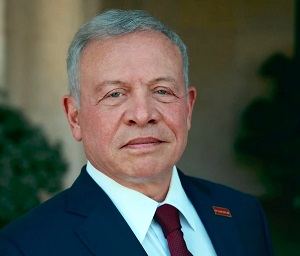 King discusses regional developments, ways to restore calm with Arab, world leaders
King discusses regional developments, ways to restore calm with Arab, world leaders
-
 Jordan warns of wider conflict as US-Israeli strikes deepen Iran crisis
Jordan warns of wider conflict as US-Israeli strikes deepen Iran crisis
-
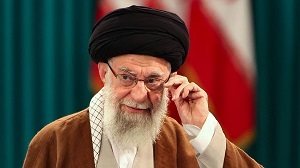 Iran's supreme leader Khamenei confirmed dead: Trump
Iran's supreme leader Khamenei confirmed dead: Trump
-
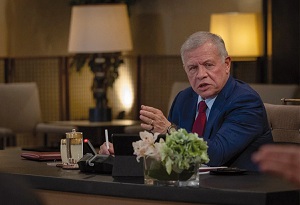 King discusses regional developments with Arab, world leaders
King discusses regional developments with Arab, world leaders
-
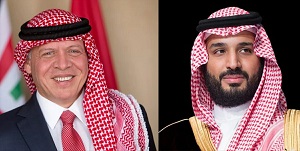 King, Saudi crown prince discuss regional developments
King, Saudi crown prince discuss regional developments